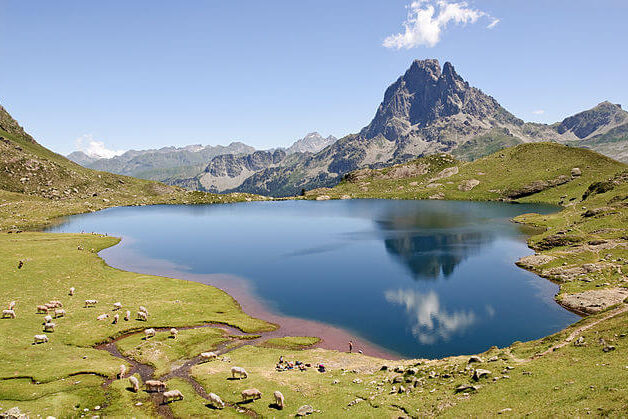
A recent study conducted by international researchers has revealed that over half of the world’s large lakes and reservoirs have experienced shrinkage since the early 1990s.
The primary drivers of this decline are the climate crisis and human consumption, raising concerns about water availability for agriculture, hydropower, and human needs.
The study, led by Fangfang Yao, a surface hydrologist at the University of Virginia, found that crucial freshwater sources like the Caspian Sea and Lake Titicaca have been losing water at an alarming rate of approximately 22 gigatonnes per year for nearly three decades. This amount is equivalent to the total water consumption of the United States in 2015.
According to Yao, 56% of the decline in natural lakes can be attributed to global heating and human water consumption, with warming being the primary factor. While climate scientists generally expect arid areas to become drier and wet regions to become wetter under climate change, the study highlighted significant water loss even in humid areas.
“This should not be overlooked,” Yao said.
The research team assessed nearly 2,000 large lakes using satellite measurements and climate and hydrological models. They discovered that unsustainable human water use, changes in rainfall and runoff patterns, sedimentation, and rising temperatures have collectively led to global declines in lake levels. From 1992 to 2020, 53% of the studied lakes exhibited a decrease in water levels.
The consequences of this trend are dire, directly impacting almost 2 billion people worldwide, with many regions already experiencing water shortages in recent years.
Scientists and activists have long emphasised the importance of keeping global heating below 1.5 degrees Celsius (2.7 degrees Fahrenheit) to avoid the most catastrophic effects of climate change. However, the study underscores how unsustainable human water use has already caused the drying up of lakes like the Aral Sea and the Dead Sea, while rising temperatures have affected lakes in Afghanistan, Egypt, and Mongolia, leading to increased water loss through evaporation.
On a more positive note, the study noted that water levels increased in a quarter of the lakes, often due to dam construction in remote areas such as the Inner Tibetan Plateau. However, the overall trend of shrinking lakes highlights the urgent need for sustainable water management practices and concerted global efforts to mitigate the impacts of the climate crisis on freshwater resources.
——————————————————————————
At Natural World Fund, we are passionate about stopping the decline in our wildlife.
The declines in our wildlife is shocking and frightening. Without much more support, many of the animals we know and love will continue in their declines towards extinction.
When you help to restore a patch of degraded land through rewilding to forests, meadows, or wetlands, you have a massive impact on the biodiversity at a local level. You give animals a home and food that they otherwise would not have had, and it has a positive snowball effect for the food chain.
We are convinced that this is much better for the UK than growing lots of fast-growing coniferous trees, solely to remove carbon, that don’t actually help our animals to thrive.
This is why we stand for restoring nature in the UK through responsible rewilding. For us, it is the right thing to do. Let’s do what’s right for nature!
Support our work today at https://naturalworldfund.com/ and join in the solution!

